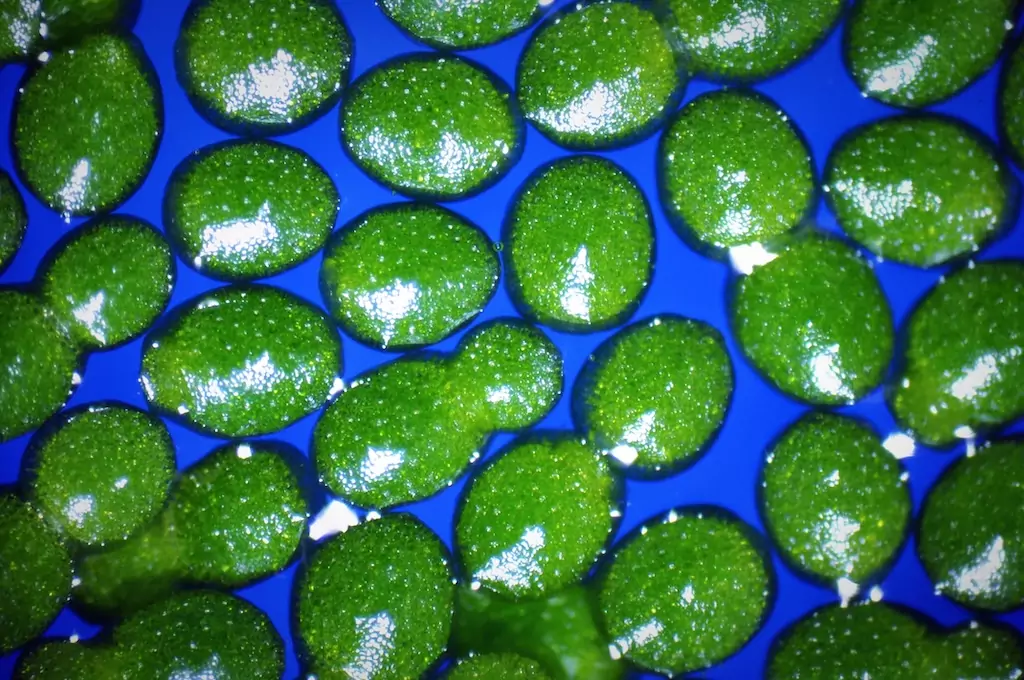Table of contents
It is early morning at the farm. The tanks hum quietly, the water is clear, and the quality manager looks at the logbook: “If you can add an ingredient that is not noticeable and does not affect performance, let’s talk about it.” This is where the alt-protein 2.0, microalgae and duckweed are moving beyond the laboratory and becoming big business. In the Mediterranean, the game is played on three simple words: invisibility (sensory), short supply chains, contracts.
Why now (and why here)IThe Mediterranean is a natural test bed: lots of light, dense agri-food supply chains, feed mills and processors just a few hours away by road. Growing start-ups are not talking about ‘green burgers’: they are talking about ingredients and feeds that solve real problems, binding, emulsifying and improving nutritional profiles without rewriting recipes or protocols. At the same time, regulatory pathways have become clearer and B2B buyers are demanding auditable and standardised solutions. Translated: less hype, more invoices.
Three scenarios from the startup front
Port and pipeline (Portugal). Teams that build plants as a product: replicable formats, assistance and training, pilot projects on Mediterranean species. They do not sell ‘algae’: they sell the ability to produce standards.
Invisible ingredients (France). Start-ups combining cultivation and processes to obtain tasteless proteins: if plant-based cheese does not taste like a lake, doors open. The real asset becomes the framework agreement with the processor, not the yield in brochures.
Benchmark duckweed (USA). Those who have signed multi-year contracts have done so by focusing on neutrality and functionality (not ‘hero products’): a useful lesson for Europe, which is now entering the commercial market.
A story that didn’t work out (and what we learned)
A duckweed pioneer pulled the plug when the product remained too ‘green’ (flavours/colour), costs rose and contracts did not arrive on time. The simple moral: neutral > narrative, contracts > slides, modular scale > monolithic plant. It is a useful scar: remember that this market rewards those who listen to buyers before falling in love with the process.
Who really buys (and what they ask for)
- Feed mills & aquaculture: partial replacement of fishmeal/soya; will be purchased if performance and quality remain stable.
- Food transformers: functional ingredients that do not alter taste/colour and simplify labels.
- Pet premium: willingness to pay for nutritional claims and a clean supply chain.
The phrase you hear everywhere: “Let us try it soon, with consistent standards and batches.”
Space: inspiration that comes back down to earth
Photobioreactors designed for closed environments (space experiments) have accelerated compact and automated solutions. This is not science fiction: these ideas are useful in greenhouses, on rooftops, and in factories. Space-like designs make operation easier — and B2B buyers see this immediately.
Mini-panorama
- LEDA (IT): duckweed for local feed; short supply chain model with industry standards, Mediterranean focus.
- AlgaEnergy (ES): microalgae solutions for animal and pet health, active industrial network.
- A4F/GreenCoLab (PT): platforms & pilots on microalgae; replicable rather than one-off plants.
- Algama (FR): microalgal ingredients for “difficult” categories (condiments, seafood-alt).
- Plantible (US, benchmark): RuBisCO from Lemna, multi-year contracts: value = neutral functionality.
The route (how contracts are being concluded)
We start with the customer, not the process. The first phone call is with the buyer: we agree on simple specifications, ingredient format, reasonable minimum volumes and how it will be tested. Then we go into the warehouse: we prepare a consistent batch (same quality, same moisture content, same documents) and propose a short, paid pilot, with two or three metrics written in advance. The supply chain is designed to be within a few hours’ drive by lorry: this makes audits easy and quality repeatable. Compliance is not promised, it is brought as a dowry, with data sheets, traceability, and feed/food requirements already in order. Finally, we scale up by modules, never by miracles: each module is created because there is a new order on the table. This is how blue-green proteins stop being an idea and become revenue.
In one sentence
Alternative proteins win when they are not seen but sold. In the Mediterranean, this is possible because buyers are just a phone call away and the supply chain is built by looking each other in the eye. The rest is just details.
Note to reader: the author is CEO of Beeco and works with investment funds active in agritech, which may have supported or will support some of the startups mentioned in the future.
ALL RIGHTS RESERVED ©
